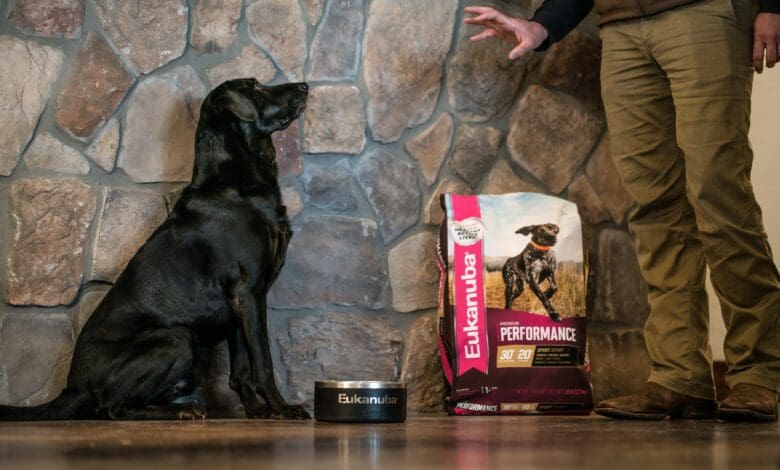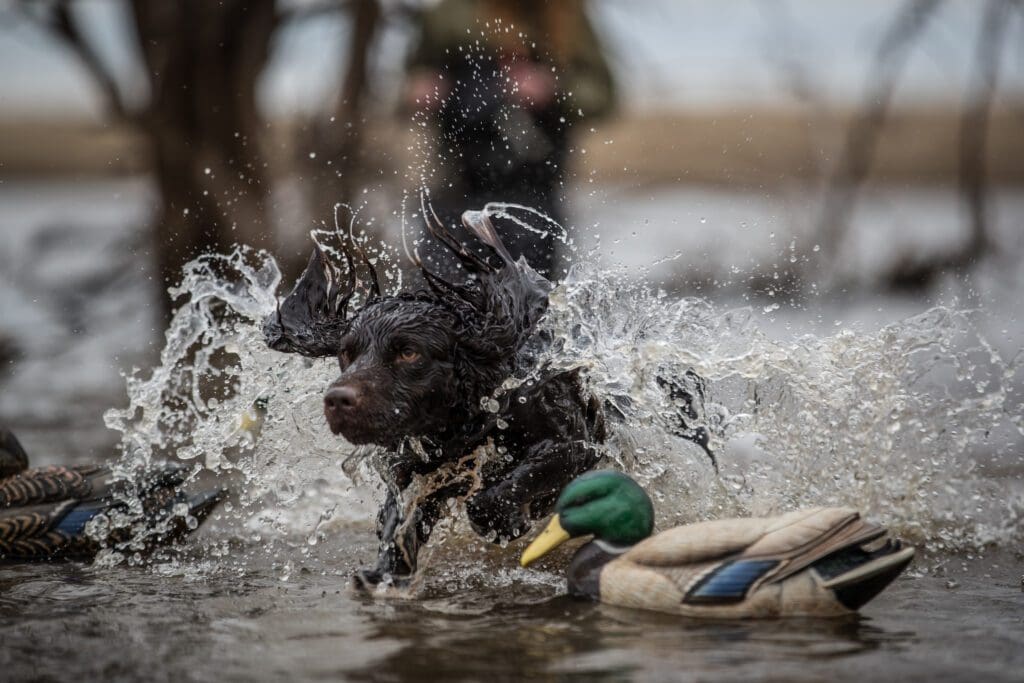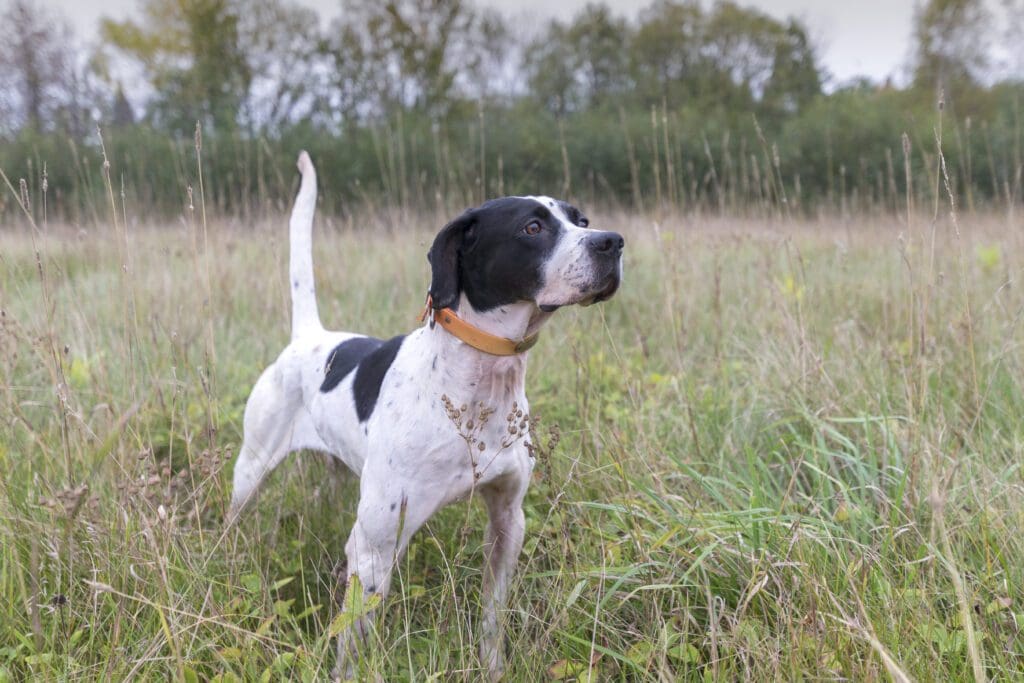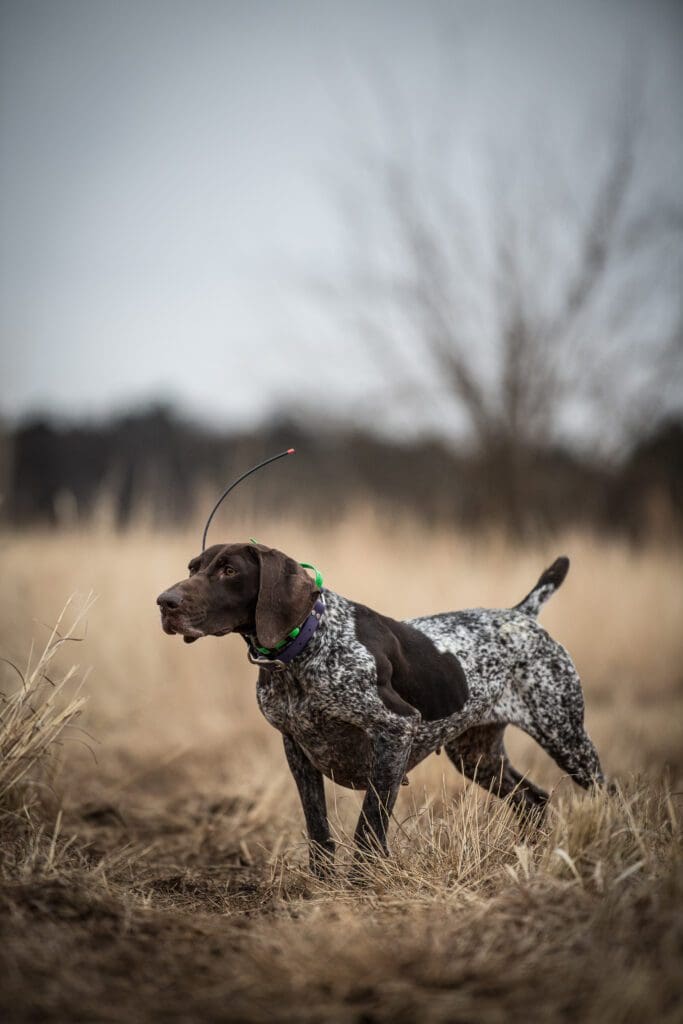
By Eukanuba Staff
Not much trumps the life of a performance gun dog. Every day they honor their genetics by retrieving, pointing, and flushing. Performance dogs work when it’s hot, they go when it’s frigid, and they’re ready during all temperatures in between. Dogs that work this hard need to be properly fed.
Their energy needs to power them for the specific work they do. Ingredients should be easily digestible so that their body can absorb nutrients that help build strong muscles, promote agile joints, and support sharp, alert minds. Helping dogs recover quickly and properly gets them ready for tomorrow, and that’s why choosing the correct formula is so important. After all, all dogs were not bred for the same activities.

ENERGY
Energy primarily comes from three different sources: carbohydrates, protein and fat. Carbohydrates burn quickly, so they’re the ideal power source for dogs working intensely for short periods of time. Dogs break down carbohydrates into glucose, which is a sugar. Glucose is easily stored and metabolizes quickly to power those short bursts of energy. Dogs that benefit from diets with a higher percentage of carbs are English Field cockers that are used as strike dogs. Because the cocker’s work is short and intense it’s anaerobic exercise. Theirs is the canine version of a sprint.
Other dogs run for longer periods of time. A casual, Saturday hunt might last for under two hours, and Labs, springers, or shorthairs work for a moderate amount of time. Feed a dog running for up to two hours carbs and he’ll tire very quickly. His diet needs to have more protein and fat. The increased amount of protein helps build strong muscles just as it supports all body systems. But it’s the increased amount of fat that gives him the energy to go hard during that time. Fatty acids are converted to energy in the mitochondria, a process that starts after a period of aerobic exercise.
Dogs running up to four hours at a time need even more energy. They’re burning calories on every retrieve and when running fields. They’ll need a greater amount of protein and even more fat for energy.
DIGESTIBILITY
Heavy workloads put a lot of stress on a dog’s digestive system, and if the GI system is irritated the dog may become sick. Ingredients that support the GI system include fermentable fibers and prebiotics like beet pulp. In addition, highly digestible ingredients help ensure nutrients are absorbed by the dog’s body.
RECOVERY
All handlers keep one eye on today’s performance and the other eye looking forward to tomorrow. Free radicals, a by-product of activity, cause oxidative stress. You’ve noticed your dog’s performance drop after several days of work. Their fatigue comes from oxidative stress which is why antioxidants like Vitamin E, lutein and beta-carotene can be beneficial.

OTHER KEY NUTRIENTS
Additional vitamins, minerals and key nutrients are necessary to support the unique needs and demands of sporting dogs. EPA and DHA help promote focus and a sharp nervous system. Chondroitin and glucosamine help support joint health. Omega-3 and omega-6 fatty acids help support healthy skin and coat which are the dog’s first line of defense.
The next time you look at your dog making multiple blinds, running fields, and snaking through covers, think about what you’re feeding him. Proper nutrition can help elevate performance levels. So feed your dog the kibble matched to the kind of work he does.

